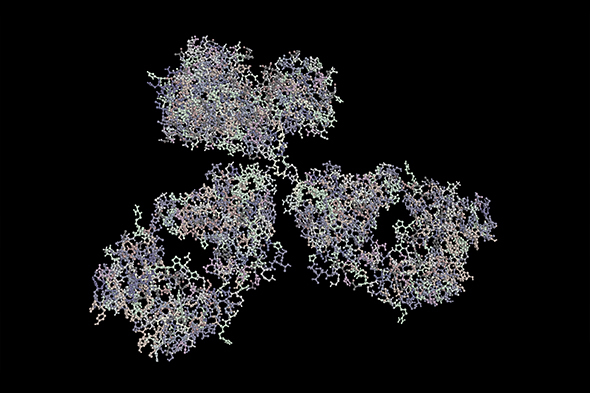
Expert Directory
Harry Paul Erba, MD, PhD
Instructor
Director, Leukemia Program
Medical Director, Hematologic Malignancies Inpatient Service
Division of Hematologic Malignancies and Cellular Therapy
Department of Medicine
Duke Cancer Institute
Duke University School of Medicine
Durham, NC
Harry Paul Erba, MD, PhD, serves as an instructor in the Department of Medicine at Duke University. He is also director of the Leukemia Program in the Division of Hematologic Malignancies and Cellular Therapy, Department of Medicine, at the Duke Cancer Institute, and medical director of the Hematologic Malignancies Inpatient Service at Duke University Hospital. He has been chair of the SWOG Leukemia Committee since 2012. His current positions as director of the Leukemia Program at Duke University and chair of the SWOG Leukemia Committee enable him to continue his passion for the development of new agents for people with acute and chronic leukemia.
Dr Erba worked as a research assistant in the laboratory of Dr Joseph Gall as an undergraduate at Yale University studying organization and transcription of the eukaryotic genome. Recombinant DNA technology was in its infancy at this time. After graduation from Yale University, he spent 1 year in England on a Fulbright-Hays Fellowship Award. He helped to establish recombinant DNA techniques in a laboratory in the Department of Zoology at the University of Leicester. While in England, he decided to pursue an MD/PhD so that he could ultimately apply his knowledge of molecular biology to a better understanding of human disease. He attended the Medical Scientist Training Program at Stanford University, where he investigated the structure and expression of the human actin gene family. His bench research allowed him to develop expertise in polymerase chain reaction technology and DNA sequence analysis for molecular genetics research. Following his fellowship training at Harvard Medical School, he moved to the University of Michigan, where, over the next 16 years, he developed a clinical research program in leukemia. He has conducted investigator-initiated, cooperative group, and industry-sponsored clinical trials. He has been active in SWOG, serving as an executive officer for the Leukemia, Lymphoma, Myeloma and Bone Marrow Transplant Committees from 2005 through 2012. His role was to facilitate the development, activation, and completion of clinical trials in the National Cancer Institute–sponsored cooperative group system. Through this experience, he has learned the ethical and regulatory considerations of research involving human subjects. He was appointed as associate director for clinical research at the University of Alabama at Birmingham Comprehensive Cancer Center in 2013, a position he held until 2018.
Dr Erba has made numerous contributions to science, including being involved in the evaluation of novel, potentially less toxic chemotherapy agents for older patients with acute myeloid leukemia (AML). He developed and served as the national principal investigator for a multicenter phase 2 study of single-agent clofarabine as initial therapy for older patients with AML who were not felt to be candidates for standard cytotoxic AML therapy. The results of this multicenter, national, phase 2 trial led to the phase 3 study ECOG 2906 evaluating standard 3+7 induction and high-dose cytarabine consolidation therapy vs single-agent clofarabine in patients with AML older than age 60 years. He has also been a principal investigator evaluating gemtuzumab ozogamicin, an anti-CD33 monoclonal antibody-drug conjugate in combination with azacitidine in older treatment-naïve patients with AML. Further, he has contributed to the evaluation of cytotoxic agents that are not substrates for MDR export, such as amonafide and vosaroxin. He has participated as an active investigator in both preclinical and clinical studies of agents targeting the mechanisms of cellular apoptosis, including MDM2, survivin, BCL2, and inhibitors of apoptosis proteins.
He has been published in leading journals, including Cell, Nature, The New England Journal of Medicine, Clinical Cancer Research, the American Journal of Clinical Oncology, Cancer, Leukemia Research, and the British Journal of Haematology.
Contributing Articles


High-Risk MDS and AML: Present Strategies and Future Directions

Principles of Supportive Care for AML

Expert Perspectives in Myelodysplastic Syndromes and Acute Myeloid Leukemia to Cover Key Topics in Myelodysplastic Syndromes and Acute Myeloid Leukemia Treatment

Insights on the Immunobiology of MDS and AML


